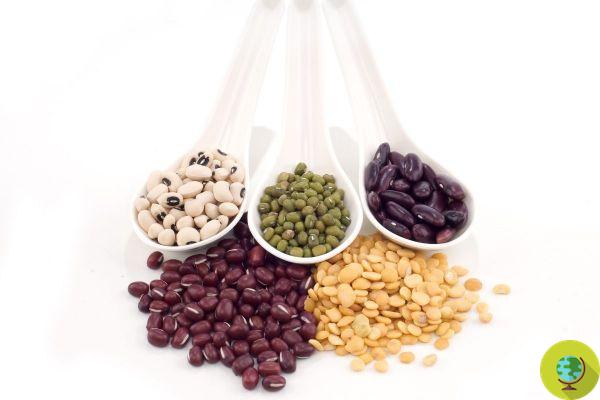
The researchers want to create a whole category of climate-sustainable plant foods, using legumes and grains
Don't store avocado like this: it's dangerousResearchers want to create a whole category of climate-sustainable plant foods. In fact, a third of the arable land of our planet is destined for the cultivation of animal feed: in theory, the crops of these lands could be used to feed more than four million people without further consumption of agricultural land.
The (ambitious) project of the University of Copenhagen is called Promentation and received 56 million Danish kroner (about seven million euros) from the Novo Nordisk Foundation. The goal is to acquire the necessary knowledge to create a new category of completely plant-based and sustainable food products, as an alternative to protein sources derived from animals.
In Promentation we use fermentation to optimize plant protein sources, so that nutrient content and nutrient availability are improved. At the same time we create flavors and textures that make these products palatable to humans to provide a good taste experience - explains the professor Dennis Sandris Nielsen, who led the project. - With the climate crisis we are facing, we need to find alternative solutions to animal proteins very quickly.
The study is based on yellow peas and oats, because both crops grow easily in the northern hemisphere and are already high in protein. At the same time, they are crops that are used essentially for animal feed. The idea is to transfer this fermentation technique to other crops as well (oats represent cereal crops and peas represent legumes).
These plants are then subjected to a fermentation process - an ancient process of food treatment - so that they become tastier and last longer: for this purpose, bacilli bacteria and different types of molds are used which increase the nutritional value of the plants and help to create that chemical structure and flavor that makes plant foods a 'real' alternative to meat.
In fact, if on the one hand the awareness of the environmental impact on the part of many people is growing, on the other hand the vegetable protein alternatives are still too unsustainable, because there is a lack of technologies to simplify the production processes of vegetable proteins.
(Read: Legumes, the best protein, but are canned ones okay too?)
There is a reason we eat meat and other animal proteins. These proteins have an excellent nutritional composition and are palatable and therefore, perhaps also for evolutionary reasons, we like them. If we have to eat less meat, there is no way to suppress this propensity of ours. This is why we want to find vegetable alternatives to meat that are not necessarily similar to it, but that at least give us the same sense of satisfaction that meat gives to many of us - concludes the Professor Nielsen. Not only do we make sure it tastes 'good' or provides humans with the right amino acid content. Our aim is to create microbial associations that are able to ferment plant elements and create as many positive effects as possible using only sustainable methods.
Fonte: University of Copenhagen
We also recommend:
- The 10 best plant-based sources of protein
- Plant-based proteins are good for you (and live longer)
- Synthetic meat: should rich countries eat it 100%? And where are we really?


























